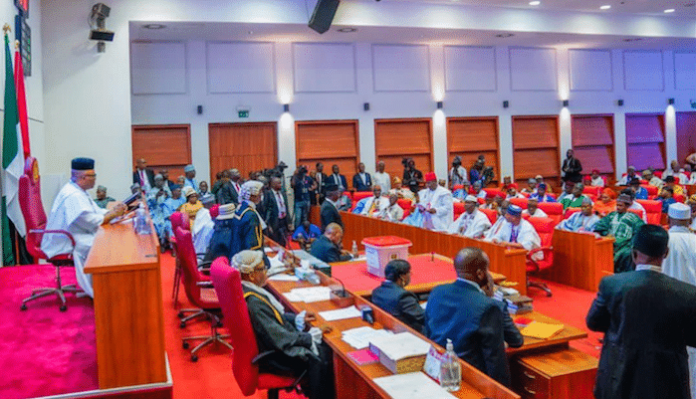The Senate on Thursday suspended consideration of the Electoral Bill, 2025 which seeks to regulate the conduct of federal, state and Federal Capital Territory, FCT, area councils elections, and for related matters.
This was meant to give the Red Chamber a room for more consultations among the senators before the next sitting.
Both chambers of the National Assembly, the Senate and the House of Representatives, had on Monday, through their joint Committees on Electoral Matters, held a public hearing on the Electoral Act Amendment Bill, 2025.
Among the notable proposals is the conduct of the 2027 Presidential and Governorship elections in November 2026, rather than February or March of the every election year.
Presenting the general principles of the bill, Chairman of the Senate Committee on Electoral Matters, Senator Simon Lalong (Plateau South) explained that the proposed legislation, which was first read on October 8, 2025, goes beyond minor amendments, describing it as a comprehensive reform aimed at providing Nigeria with a more credible, transparent, and inclusive electoral framework.
According to him, the 2023 general elections revealed both strengths and weaknesses in the current system.
“The 2023 elections tested our democracy in profound ways. While the 2022 Act introduced landmark innovations, it also exposed critical gaps — delays in election funding, disputes over voter registers, conflicting interpretations of result transmission, and weak enforcement of electoral offences,” Lalong said.
He added that Nigerians expect not “patchwork corrections,” but a holistic law that restores faith in the electoral process.
President of the Senate, Senator Godswill Akpabio, who presided over the session, said Lalong did not give details in the general principles of the bill, and suggested an executive session to consider the bill.
But the Leader of the Senate, Senator Opeyemi Bamidele (Ekiti Central), said the day was too auspicious for the Senate to go into executive session and suggested that the bill be stepped down or another legislative day.
Consequently, Akpabio put it to voice vote, which senators approved its stepping down.






